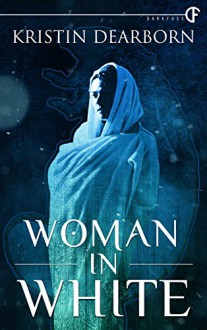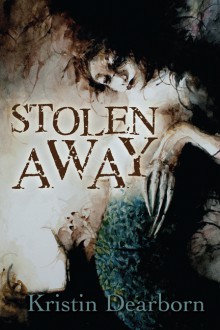 Woman in White wasn’t nearly what I was hoping it would be. I had been looking forward to reading this book for over a year now, and when it was on sale, eagerly snatched it up. I thought surely I was in for a treat because while I was familiar with the lady in white myth, I hadn’t really read a full book based around it. And I still haven’t read a full book around it. So, yes, I’m a tad bit disappointed.
Woman in White wasn’t nearly what I was hoping it would be. I had been looking forward to reading this book for over a year now, and when it was on sale, eagerly snatched it up. I thought surely I was in for a treat because while I was familiar with the lady in white myth, I hadn’t really read a full book based around it. And I still haven’t read a full book around it. So, yes, I’m a tad bit disappointed.And I can’t even really talk about the most awesome part of the book without spoiling something! Argh! Let’s just say that Kristin Dearborn had the most inventive take on the Lady in White myth that I’ve ever read. It made me perk up and pay attention to Woman in White. Unfortunately, this aspect of the book was the only thing I wanted to pay attention to. The rest of it was pretty much an insertion of cliche stereotypes, mostly of the small-town variety, and boring human drama cast against the backdrop of this massive snowstorm. Been there, done that, in pretty much every winter-weather horror tale ever.
To me, the potential of this book was hidden by too much people drama and not enough monsters. It is okay if that’s what you’re looking for, but it left me the bitter taste of a good idea being wasted.(Yes, I’m a blood, guts, and gorehound with a dash of supernatural. I can’t help it.)
So overall Woman in White had a lot of potential and a great view on the myth. If the author had chosen to spend more time drawing out the reveal of what the woman in white was, I think it could have been more fun. Instead, the reveal, and everything felt a bit rushed. Unfortunately, as it was, a cool take on the myth is just not enough to make it stand apart from the crowd, especially when the rest of the novel falls so flat. It has too many cons and not nearly enough pros to make it something that I could recommend.

 Log in with Facebook
Log in with Facebook 






